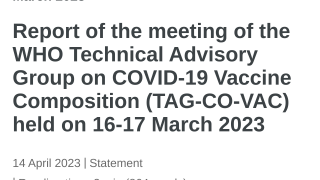Real-World Data Reveals COVID-19 Treatment Efficacy
The COVID-19 pandemic created a real-life experiment that demanded real-world solutions that delivered measurable benefits.
A peer-reviewed analysis published in the Annals of Internal Medicine by researchers with the University of Pittsburgh School of Medicine and others shows monoclonal antibody treatments were worth the investment.
“The virus was a moving target, and, for two years, monoclonal antibodies (mAbs) were approved, revoked, sometimes reauthorized, and sometimes scarce,” said lead author Kevin Kip, Ph.D., vice president of clinical analytics at UPMC, in a press release on April 3, 2023.
“Using UPMC’s database of patients treated with mAbs —one of the largest in the U.S. — we can finally conclude that pushing through all these challenges unequivocally saved lives and prevented hospitalizations.”
mAbs are human-made antibodies designed to prevent a pathogen — the SARS-CoV-2 coronavirus that causes COVID-19 — from entering human cells, replicating, and causing serious illness.
The U.S. Food and Drug Administration (FDA) granted emergency use authorization (EUA) to five COVID-19 mAbs treatments between 2020 and 2022.
All were restricted to people aged 12 and older with risk factors that made them more susceptible to bad outcomes from COVID-19.
The treatments had to be administered intravenously or through injection by a healthcare professional. As the virus evolved, new monoclonal antibodies were introduced, and older ones, which were no longer effective, were removed.
Starting with the first authorization at the end of 2020, UPMC opened dozens of clinics, set up emergency department infrastructure, and arranged home visits to maximize its ability to provide mAbs to patients in Pennsylvania, New York and Maryland.
After the emergency use authorization was revoked for the last mAbs on November 30, 2022, and no new mAbs were introduced.
UPMC pulled anonymous clinical data on 2,571 patients treated with monoclonal antibodies and matched them with data from 5,135 patients with COVID-19 who were eligible for mAbs but did not receive them.
On average, people who received mAbs within two days of a positive COVID-19 test reduced their risk of hospitalization or death by 39% compared to their peers who did not receive the treatment.
Regardless of age, patients with immunocompromising conditions had an even greater reduced risk.
Patients treated when the alpha and delta variants of the virus were circulating experienced a more significant benefit than their untreated peers compared to those treated when the omicron variant was circulating, likely because earlier variants were more deadly and people had less prior immunity from previous infection or vaccination.
By the time omicron was circulating, the risk of death and hospitalization had fallen in general, so mAbs treatment had less overall benefit but still clinically meaningful benefit, particularly in vulnerable patients, explained co-author Erin McCreary, Pharm.D., director of infectious diseases improvement and clinical research innovation at UPMC.
“Right now, COVID-19 has a relatively low risk of death for the general population, but we have seen how quickly this virus can mutate and spread. So nobody can say with certainty that a future variant won’t be more deadly,” McCreary said.
“Should that happen, our real-world data give reassurance that investing in the infrastructure and health care worker knowledge to give antibody treatments quickly keeps people in the communities we serve alive and out of the hospital.”
The authors of this research did not disclose industry conflicts of interest.
Note: On April 4, 2023, Gohibic (vilobelimab) was granted a EUA by the FDA to treat COVID-19 in certain hospitalized adults. Gohibic (vilobelimab), a first-in-class monoclonal anti-human complement factor C5a antibody, has been granted an Emergency Use Authorization by the U.S. Food and Drug Administration to treat COVID-19 in hospitalized adults when initiated within 48 hours of receiving invasive mechanical ventilation.
Updated April 26, 2023 - Corrected grammar, removed redundancy, and inserted related disclosure links.










_0.jpg)

.jpg)


.jpg)






.jpg)